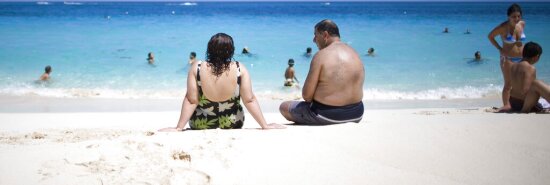
Visa wait times are slowing the tourism industry’s recovery
Dee Stewart
Video Embed
Of all the countless industries and businesses that make up the U.S. economy, none has been hit harder over the past several years than travel and tourism. The consequences of the COVID-19 pandemic cannot be understated, and some of its lingering effects continue to ripple outward.
Even as people began to travel domestically once again, international trips have lagged. Businesses that once relied on a stream of visitors are locked in a struggle for survival. With more economic uncertainty in store for 2023, the government should consider measures to act where it can, including taking a hard look at visa wait times, to help lessen businesses’ burdens.
SENATE TO INVESTIGATE SOUTHWEST AIRLINES HOLIDAY TRAVEL FIASCO
While millions of jobs nationwide rely on tourism (it directly supports 9 million overall), the industry is far behind where it stood before COVID-19 struck. Before the pandemic, global international travel spending accounted for $1.8 trillion in 2019. In 2020, the industry output in the United States was cut in half, representing the largest contraction since the Bureau of Economic Analysis began tracking it. That yawning canyon between where we stood in 2019 and where we stand in the present has yet to be filled completely. Spending by international visitors stood at $20 billion in December 2019 and had only climbed back to $11.1 billion as of December 2021.
Boosting international travel could be an essential economic shot in the arm for businesses as diverse as airlines and restaurants. However, more economic uncertainty on the horizon and inflation weighing on wallets are both calls to action and deterrents for earning more international tourists. Prospects for a steady recovery for relevant businesses have darkened, potentially leading to another sharp downturn for them to manage.
To mitigate the industry’s struggles, there are several alternative avenues, many of which have been recently attempted with success. In 2012, as the U.S. was weighed down by another financial crisis, the federal government was exploring options to stimulate sectors of the economy that had fallen on hard times. One of the routes they pursued via executive order was taking a hammer to tourism visa wait times that had significantly increased in several countries and close trade partners.
We are now seeing a similar dynamic, with the backlog for an appointment at a U.S. consular office in a prospective tourist’s home country erupting. For example, the wait for an appointment now stands at 641 days in Mexico City (nearly two years) and 347 days in Rio de Janeiro.
With this massive queue, and with many not being from one of the few countries that the U.S. accepts visitors from without a visa, most tourists will look elsewhere. This represents a colossal amount of potential spending from foreign nationals left on the table. In fact, the U.S. Travel Association estimates we will lose nearly $12 billion in spending from international travelers being unable to obtain a visa in time to travel to the U.S. in 2023.
While work visas generally take up so much of the oxygen in the halls of power, President Joe Biden and Congress should investigate the steps taken in 2012. Countless jobs and economies could hang in the balance if travel businesses slip down the same slope as 2020.
CLICK HERE TO READ MORE FROM THE WASHINGTON EXAMINER
Dee Stewart is the president and CEO of Americans for a Balanced Budget.
